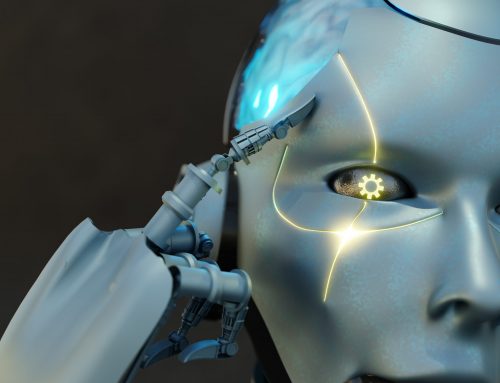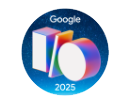Welcome to the wonderful world of artificial intelligence (AI), where technology meets SEO. As we know, AI is playing an ever-increasing role in the technology industry and is also bringing huge changes in the field of SEO, i.e. search engine optimization. AI and SEO are becoming more and more closely related, and this trend will only increase in the future.
Artificial intelligence doesn't just exist in sci-fi movies anymore, it exists in real life and we use it every day, whether we know it or not. AI can process and interpret huge amounts of data, which is a SEO very useful in terms of It can help you find the best keywords for your content, optimize your website for search engines, or even analyze user behavior.
Search engines such as Google, also use artificial intelligence to rank websites. For example, Google uses a system called RankBrain that uses AI to rank search results. This means that Google not only considers keywords and link building, but also how useful and relevant your content is. content for users.
So, if you thought the SEO it's all about keywords and link building, think again! AI is revolutionizing SEO, and if you want to keep up with the changes, you should familiarize yourself with Artificial Intelligence with his world. In this article, I will walk you through the relationship between artificial intelligence and SEO, show you how you can use AI in your SEO strategy, and how it can help you achieve better performance in search engines.
Artificial intelligence and search engines
Examining the relationship between artificial intelligence and search engines, we can find a lot of interesting information. Search engines like Google have long used AI to help rank search results. For example, Google uses a system called RankBrain, which uses artificial intelligence to rank search results. But what is RankBrain and how does it work?
RankBrain is part of an algorithm in Google's search engine that uses artificial intelligence and machine learning to interpret search queries and display the most relevant results. RankBrain can "understand" search queries and determine which web pages' content is most relevant to the user. This means that RankBrain not only considers keywords, but also the quality and relevance of your content.
The role of artificial intelligence is also significant in the development of search engine algorithms. AI can process and interpret huge amounts of data, which allows search engines to better understand the content of web pages and the behavior of users. This means that search engines are able to "learn" from user behavior and constantly refine their ranking algorithm to provide the best results for users.
Artificial intelligence already plays a significant role in the operation of search engines, and this role will only increase in the future. AI can “understand” user needs, “learn” from user behavior, and continuously refine ranking algorithms to deliver the best results for users. With the help of AI, search engines will be able to better understand the needs of users and provide them with even more relevant results. With the help of AI, search engines will be able to “think” and “learn” like the human brain, thereby understanding the needs and behavior of users even more. AI therefore plays a growing role not only in the technology industry, but also in the world of search engines and SEO.
The impact of artificial intelligence on SEO
Artificial Intelligence (AI) has revolutionized SEO (Search Engine Optimization) and the world of digital marketing. AI can process and interpret huge amounts of data, which allows SEO professionals to better understand how search engines work and optimize websites.
AI affects the keyword research and content optimization. Using machine learning and natural language processing (NLP), AI can “understand” the content of web pages and determine which keywords the most relevant. This means that with the help of AI, SEO professionals can choose the best keywords to optimize their content and better understand how users search the web.
The role of AI in link building is also significant. AI can analyze the link profile of websites and determine which links are most valuable for SEO. This means that with the help of AI, SEO professionals are able to better understand link building strategies and build their link profiles more effectively.
The role of AI in the analysis of user behavior is also significant. AI can process and interpret user data, which allows SEO professionals to better understand user behavior and needs. This means that, with the help of AI, SEO specialists are able to better understand user behavior and better optimize websites according to user needs.
According to recent research, combining AI and blockchain technology can help increase the security of IoT networks, opening up additional opportunities for SEO. AI can “understand” user needs, “learn” from user behavior, and continuously refine SEO strategies to deliver the best results for users. So AI is shaping not only the present but also the future of SEO. As technology evolves, SEO professionals must constantly adapt to new trends and technologies to achieve the best results.
The future of artificial intelligence and SEO
A number of exciting trends can be expected in the near future in the field of artificial intelligence (AI) and SEO (search engine optimization). AI and machine learning are increasingly integrated into how search engines work, and SEO professionals must increasingly adapt to this change.
One of the most important trends to consider is the growing importance of personalized search results. AI can "understand" users' needs and preferences and provide personalized search results based on that. This means that SEO professionals must increasingly consider user behavior and needs when optimizing websites.
Another important trend is automated SEO driven by AI. AI can automate much of the SEO process, such as keyword research, link building, and content optimization. This can significantly reduce the workload of SEO and allow professionals to spend more time on strategic decision-making and creative tasks.
Businesses must prepare for AI-driven SEO. This means they need to invest in AI technology, train their staff and adapt to new SEO trends. THE latest research According to
A number of exciting trends can be expected in the near future in the field of AI and SEO. SEO professionals must adapt to these changes and prepare for AI-driven SEO. As technology evolves, SEO professionals must constantly adapt to new trends and technologies to achieve the best results. AI is shaping not only the present but also the future of SEO, and now is the time for businesses to prepare for this change. SEO driven by AI and machine learning strategies its application can help businesses gain a competitive advantage, increase the visibility of their websites, and better understand user behavior. So AI is shaping not only the present but also the future of SEO, and now is the time for businesses to prepare for this change.
Summary
Examining the relationship between AI and SEO, according to one of the latest researches, AI is not just a tool, but a general-purpose technology whose spread and application can have a significant impact on production, corporate finances, and the economy in general. The use of AI technologies in SEO enables businesses to reach their target audience more effectively, improve their website's ranking in search engines, and increase their online visibility.
AI can “understand” user needs, “learn” from user behavior, and “adapt” to changing SEO trends. This means that AI can automatically optimize websites based on user behavior, improve website rankings in search engines, and increase businesses' online visibility.
AI can also “predict” future SEO trends, which can help businesses and SEO professionals prepare for future changes. AI can “learn” from past data, “understand” current trends, and “predict” future trends. This means that AI can help businesses and SEO professionals plan and implement future SEO strategies.
Last but not least, AI can “automate” SEO processes, which can save businesses time and resources. AI can automatically generate and optimize content, automatically manage link building and keyword research, and automatically monitor and improve website performance. This means that AI can increase the effectiveness and efficiency of SEO while reducing the cost and effort of SEO.








